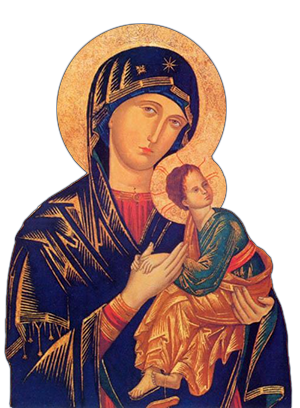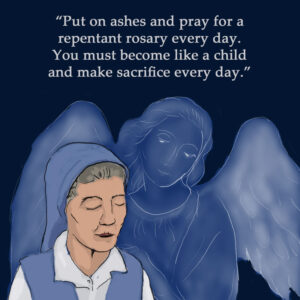Gilbert: the Return of the Father
After falling out of fashion for a few decades, fatherhood is returning to the Western World, and not for any newfound appreciation by the world. If the world had its way, fatherhood would be relegated to museums, stashed within a few dusty cases along the far wall of the “World Religions” wing.
Fatherhood, like all things of nature, has a staying power despite efforts against it. And so, the return of fatherhood might as well be described as the return to natural form. But nature alone cannot describe a person. In the same way, God’s personhood is better described as fatherhood.
The confusion of the times, this mixing pot of fact and fiction and the stirred discontent with any sense of self that is informed by history, by lineage, by family traits; by things other than what we would choose for ourselves, has caused an economy of identity rife with fraud and insider trading. We haven’t found happiness within. We haven’t found the so-called Inner Light. These frantic, shallow campaigns to contrive new fashionable personas have shown themselves as having the base aim of not being like the virtues of old. Now, the not-beingness of them is giving out and the resistance to the paternal good is giving in.
Young men of our culture, who have been warned so far away from actual masculinity by so much hand wringing and social scolding, now celebrate the simplest expressions of male solidness with the kind of acclaim that a young fan has for his favorite athlete.
Behold, antiquity has been made new! And the first item to be re-appreciated is no less than The Patriarch. He has quite the controversial reputation, but no one knows why. He causes a stir among the Cosmopolitans when he arrives. They exchange sour looks and words are muttered between them, but no one dares speak up. What can be said that hasn’t already been screamed? All the words and violence against the Father have not changed who He is.
The high contrast of the definition of fatherhood against all their vague ideas proved to be their undoing (Ps 81:12). Spiritual laxness, like a flabby paunch of self-indulgence, when laid bare, repulses. And we saw flaccid effeminacy rolling out from under the t-shirt of immaturity and sagging around the slackened belt of worldly comforts, and it mortified us! And now, having come to our senses, see the value of discipline.
Discipline is ordered towards the specific and definite, natural form. When God chose Joseph to foster His only son, it was his justness that was most attributable (Matthew 1:19). A man is nothing if not just. Justice, lawfulness, authority, order; things of the masculine which give a sense of security that is painfully absent from the psychosis of the present; cracks in the frail modern psyche can no longer be hidden under the broad humanist blanket.
There is a gross lack of confidence in the heart of an age that beats its chest so proudly, that champions the lesser good with such restless attentiveness. Tiredness sets in, and with it, the want of peace. Even an activist needs to sleep sometime. Our lives are lived more separately today and there are more silences between us. Silence invites introspection and introspection requires sound character. So, as the Din of Doing fades, and we are left with the Silence of Being, the natural identity–wanted or not–comes to rest in our hearts.
And that is where we find ourselves on our journey away from the pigsties of sin, reconsidering our father, remembering his goodness, and desiring it even without the benefit of sonship. A lesser rank in an ordered home is preferable to a throne among pigs. Maybe he can give us some low-skilled labor while we nurse our starved souls back to health?
We begin our journey home.
Then he sees us from afar. He runs out to us (Luke 15:20). He’s surprisingly fast for an old man! And…what’s this? He’s embracing us? Has he forgotten how badly we treated him? How does he love us with such selflessness? Who are we to be loved this much?
And so, our return to the father becomes the father’s return to us. Somehow or another, on the long journey home to him, our father has reached us first, and the inexpressible goodness of being the son of such a pure being is remembered deep within our hearts; an understanding that a father is, first and foremost, an expression of love.



